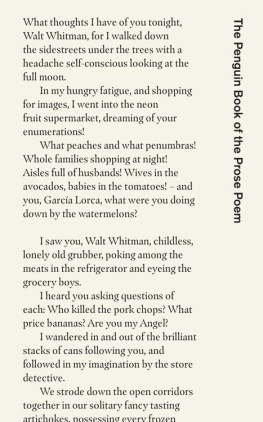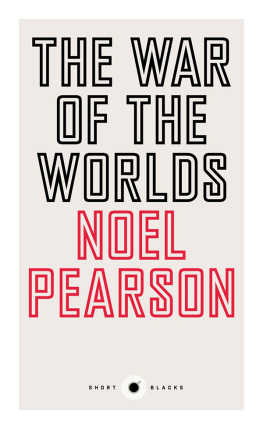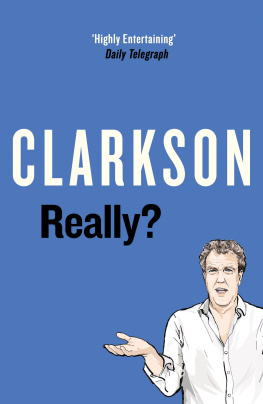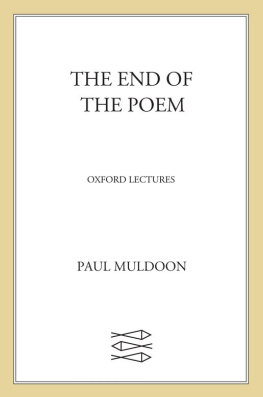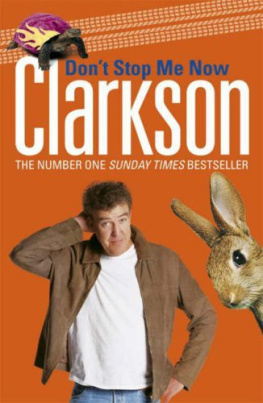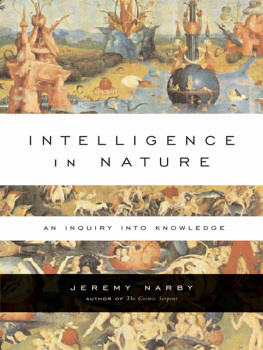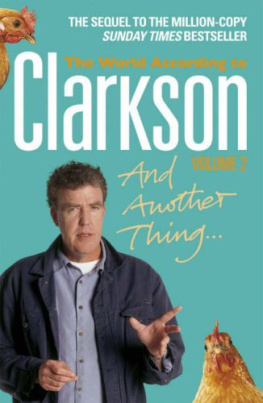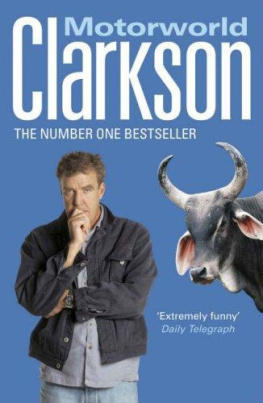Jeremy Noel-Tod - The Penguin Book of the Prose Poem
Here you can read online Jeremy Noel-Tod - The Penguin Book of the Prose Poem full text of the book (entire story) in english for free. Download pdf and epub, get meaning, cover and reviews about this ebook. year: 2018, publisher: Penguin Books Ltd, genre: Detective and thriller. Description of the work, (preface) as well as reviews are available. Best literature library LitArk.com created for fans of good reading and offers a wide selection of genres:
Romance novel
Science fiction
Adventure
Detective
Science
History
Home and family
Prose
Art
Politics
Computer
Non-fiction
Religion
Business
Children
Humor
Choose a favorite category and find really read worthwhile books. Enjoy immersion in the world of imagination, feel the emotions of the characters or learn something new for yourself, make an fascinating discovery.
- Book:The Penguin Book of the Prose Poem
- Author:
- Publisher:Penguin Books Ltd
- Genre:
- Year:2018
- Rating:3 / 5
- Favourites:Add to favourites
- Your mark:
- 60
- 1
- 2
- 3
- 4
- 5
The Penguin Book of the Prose Poem: summary, description and annotation
We offer to read an annotation, description, summary or preface (depends on what the author of the book "The Penguin Book of the Prose Poem" wrote himself). If you haven't found the necessary information about the book — write in the comments, we will try to find it.
The Penguin Book of the Prose Poem — read online for free the complete book (whole text) full work
Below is the text of the book, divided by pages. System saving the place of the last page read, allows you to conveniently read the book "The Penguin Book of the Prose Poem" online for free, without having to search again every time where you left off. Put a bookmark, and you can go to the page where you finished reading at any time.
Font size:
Interval:
Bookmark:

THE PENGUIN BOOK OF THE PROSE POEM
From Baudelaire to Anne Carson

Contents
PENGUIN MODERN CLASSICS
THE PENGUIN BOOK OF THE PROSE POEM
Jeremy Noel-Tod is a Senior Lecturer in the School of Literature, Drama and Creative Writing at the University of East Anglia. His literary criticism has been widely published and he has been the poetry critic for the Sunday Times since 2013. His books as an editor include the revised edition of the Oxford Companion to Modern Poetry (2013) and the Complete Poems of R. F. Langley (Carcanet, 2015).
Introduction: The Expansion of the Prose Poem
I What is poetry and if you know what poetry is what is prose Gertrude SteinHow do you define a prose poem? I have often been asked this question since I began to put together what follows: two hundred poems from around the world which have been chosen to represent the exciting, surprising, and memorable possibilities of a form that has sometimes been regarded with suspicion but is now suddenly everywhere. Collections of prose poems such as Claudia Rankines Citizen (2014) win major prizes, and anyone who picks up a poetry magazine will almost certainly spot one. This book includes a range of names that might be expected to feature in any representative anthology of modern poetry in English: John Ashbery, W. H. Auden, Elizabeth Bishop, Rita Dove, T. S. Eliot, Allen Ginsberg, Seamus Heaney, Adrienne Rich. But it also celebrates neglected poets who have written with brilliance in a form habitually overlooked by anthologists. Together, they comprise an alternative history of modern poetry and an experimental tradition that is shaping its future.
How, then, to define the prose poem? After reading so many, I can only offer the simplest common denominator: a prose poem is a poem without line breaks. Beyond that, both its manner and its matter resist generalization. The prose poem has been called a genre with an oxymoron for name (Michael Riffaterre), yet it may be doubted whether it is in fact a genre at all; another critic has positioned it on the boundaries of genre, between the many kinds of other writing it may mercurially resemble. Surveying the 175 years of poetry represented here, what emerges for me is the prose poems wayward relationship to its own form and it is this, I believe, that makes it the defining poetic invention of modernity. In an age of mass literacy, our daily lives are enmeshed in networks of sentences and paragraphs as extensive as any urban grid. The prose poem drives the reading mind beyond the city limits.
Poets, of course, have long known that the border between verse and prose is porous. Is the prose soliloquy in which Hamlet exclaims What a piece of work is man really any less a piece of Shakespearean poetry than the blank verse of To be or not to be ? Sir Philip Sidney informed Renaissance readers that although the inside and strength of Platos dialogues was philosophy, the skin, as it were, and beauty depended most of poetry; in the Romantic era, Percy Bysshe Shelley contended that the distinction between poets and prose writers is a vulgar error; and the French Symbolist poet Stphane Mallarm believed that there is no such thing as prose: there is the alphabet, and then there are verses. Put letters together to make words, that is, and you are already working with the basic units of poetic rhythm.
As the critic D. W. Harding noted in his study of rhythm in literature, all the prose we ever read is chopped up into lines; we rightly pay no attention to them. Poetry, we might say, bends the bars of the prose cage.
As Hermine Riffaterre has observed, the formal framework of the individual prose poem is ad hoc, and often makes its home among other forms and genres. The prose of information, we begin to realize, comes in many forms, and all have the potential for poetry to be injected, like coloured ink, into their ostensibly transparent sentences.
With the exception, however, of the neatly trimmed abattoir notice presented as a found poem by Laurie Duggans Hearts (
At the same time, the question persisted as to whether prose poetry was a subject to be mentioned in polite society at all. Oscar Wilde had made the term notorious in 1895 when, in court, he described a letter he had written to his lover, Lord Alfred Douglas, as a prose sonnet (an association that later prose poems, such as Dulce Mara Loynazs Love Letter to King Tutankhamun (
In casting doubt on the sanity of the prose poet, Eliot may have had in mind the infamous example of Gertrude Stein. Once much mocked for her emphatically repetitive, under-punctuated style, Stein now deserves to be recognized as the most original prose poet in the English language. With the vividly abstract domesticity of Tender Buttons (1914), she invented a verbal Cubism in which household objects and foodstuffs are evoked in enigmatically glancing ways (a way of naming things that would mean names without naming them), just as the Cubist still-life broke up the solid contents of caf tables into overlapping planes.
The freedom of the prose poem to follow the unmetrical pathways of thought can also take it in the opposite direction, towards a plainer style, imitative of speech. In this mode, the prose poem employs the formulas and rhythms of story-telling, with all their alluring familiarity and suspense. Among the handful of prose poems famous enough to be anthology pieces already are Joy Harjos Deer Dancer (), which was written after travelling to El Salvador during the countrys civil war. What you have heard is true, Forch begins, before recounting an almost unbelievably horrifying encounter with a military man in simple, declarative sentences that read like an eye-witness report. This is a poem, it seems, that has been written in defiance of the colonel who mocks: Something for your poetry, no?
The story-telling prose poem also lends itself to the comic anecdote, and this has been its most popular manifestation in America and Britain since the 1960s, under the influence of up-the-garden-path absurdists such as Russel Edson () in full:
A poem goes to the other side. Its different there, but thats not why I wrote it. Theres all there is, in the chicken joke. Where are you going with this.Another kind of fabulism in which post-war poets have excelled is the mythology of an everyday object. Foreshadowed by the elemental meditations of Gabriela Mistral (In Praise of Glass, ), which catalogues a shape-shifting sculpture that exists only in words ( The Stumbling Block is a graphite font).
The prose poems tendency to dwell on image over narrative begins with the curious book that Baudelaire acknowledged as his model: Aloysius Bertrands Gaspard de la Nuit (1842), a collection of historical vignettes offered to the reader as the vision of an old man who may be the Devil. Its first piece, Haarlem ( A century after the midnight visions of Aloysius Bertrand, the prose poem bore prophetic witness to the way that modern life itself had become violently surreal.
II Prosaic France passed over to poetry. And everything changed . Aim CsaireVersification varies from language to language and its subtleties are notoriously difficult to translate. One convention is simply to accept the loss of poetic form and render verse as prose and one subgenre of the prose poem is to perform the translation of an absent original, as in Allen Upwards invented classical Chinese poems, Scented Leaves from a Chinese Jar (
Without the visual architecture of verse, the prose poem is not immediately identifiable on the page. When read aloud, however, it is often characterized by the kind of echoic patterning that we associate with verse, arriving at its conclusion with a resonant neatness what Amy Lowell, writing in defence of her own polyphonic prose, called the spherical effect of poetic form.), which begins with the speaker, having received a diagnosis of cancer, planning to write 100 100-word units. What do you expect me to do break into bloody haiku? (He then does this anyway: Verse is for healthy / arty-farties. The dying / and surgeons use prose.)
Next pageFont size:
Interval:
Bookmark:
Similar books «The Penguin Book of the Prose Poem»
Look at similar books to The Penguin Book of the Prose Poem. We have selected literature similar in name and meaning in the hope of providing readers with more options to find new, interesting, not yet read works.
Discussion, reviews of the book The Penguin Book of the Prose Poem and just readers' own opinions. Leave your comments, write what you think about the work, its meaning or the main characters. Specify what exactly you liked and what you didn't like, and why you think so.

